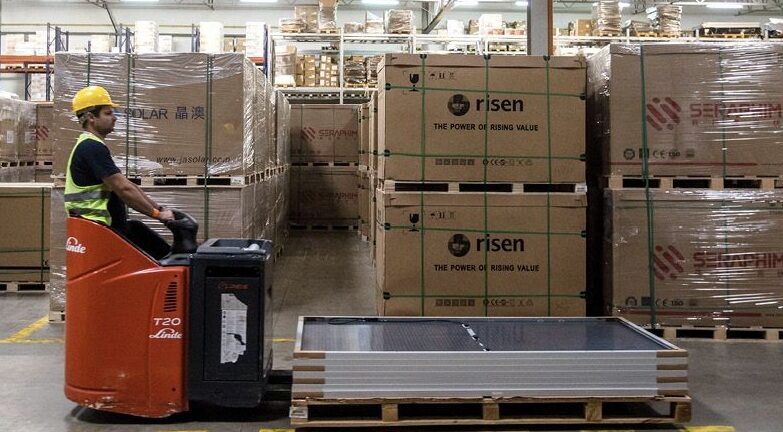Swedish start-up Epishine has unveiled a semi-transparent organic solar module designed for applications in sensors, consumer electronics and other low-power devices, to reduce or eliminate the need for batteries.
The ultralight panel, dubbed Light Energy Harvesting (LEH), has a thickness of 0.2mm and is available in six versions of different size. “Under typical indoor illumination of around 500 lux, from light sources such as LED or fluorescent light, the device's power conversion efficiency is just below 15%,” the company CTO, Jonas Bergqvist, told pv magazine.
The panel size depends on the cell size, which may vary from 50x50mm to 50x20mm. The largest device has an open-circuit voltage of 3.8 V, a short-circuit current of 146 μA, and an output power of 418 μW. The smallest one features an open-circuit voltage of 5.05 V, a short-circuit current of 42 μA, and an output power of 150 μW.
The module is protected with an encapsulation barrier that protects it from oxygen and moisture. “We have developed a roll-to-roll printing process where we print all the layers and current collectors,” Bergqvist further explained. “We print all our materials in the light cell on a PET substrate and we work with organic solar cells which means that the active layer converting light energy to electricity is composed of carbon-based molecules.
“The price depends on the volume of the order and if there are any modifications on size or design to fit the product,” Bergqvist stated, adding the products are currently being manufactured at the company's facility in Linköping, Sweden. “Regarding initial factory capacity, we will be able to meet the demand we see right now and we will be able to scale our capacity to meet larger orders,” he added, without specifying how much current capacity is.
The product can also be used in conjunction with capacitors to replace batteries or prolong their lifetime in low-power applications. “As a reference estimate, indoor PV modules are commonly sized like a credit card or two and our panel has a surface of 30cm2 [of] indoor PV module, which means that 1,000m2 allows for over 300,000 indoor PV modules,” Bergqvist said.
“Epishine's long-term goal is to be in the forefront of printed organic solar cells and, step by step, enable the world's most scalable, resource-efficient and affordable solar cell,” the company said in a statement issued on the occasion of the launch of the module. “The company was founded in 2016 and has just over 20 employees, with [its] headquarters in Linköping, and is mainly owned by a founding team together with renowned institutional investors and family offices.”
In 2019, the Swedish company was awarded a grant of approximately SEK24 million (€2.3 million) from the European Commission, within the Horizon 2020 program. Other investors include Swedish investment firms Beijer Ventures, Vigo Carlund, Almi Invest Greentech, and Potential Invest.
This content is protected by copyright and may not be reused. If you want to cooperate with us and would like to reuse some of our content, please contact: editors@pv-magazine.com.




By submitting this form you agree to pv magazine using your data for the purposes of publishing your comment.
Your personal data will only be disclosed or otherwise transmitted to third parties for the purposes of spam filtering or if this is necessary for technical maintenance of the website. Any other transfer to third parties will not take place unless this is justified on the basis of applicable data protection regulations or if pv magazine is legally obliged to do so.
You may revoke this consent at any time with effect for the future, in which case your personal data will be deleted immediately. Otherwise, your data will be deleted if pv magazine has processed your request or the purpose of data storage is fulfilled.
Further information on data privacy can be found in our Data Protection Policy.